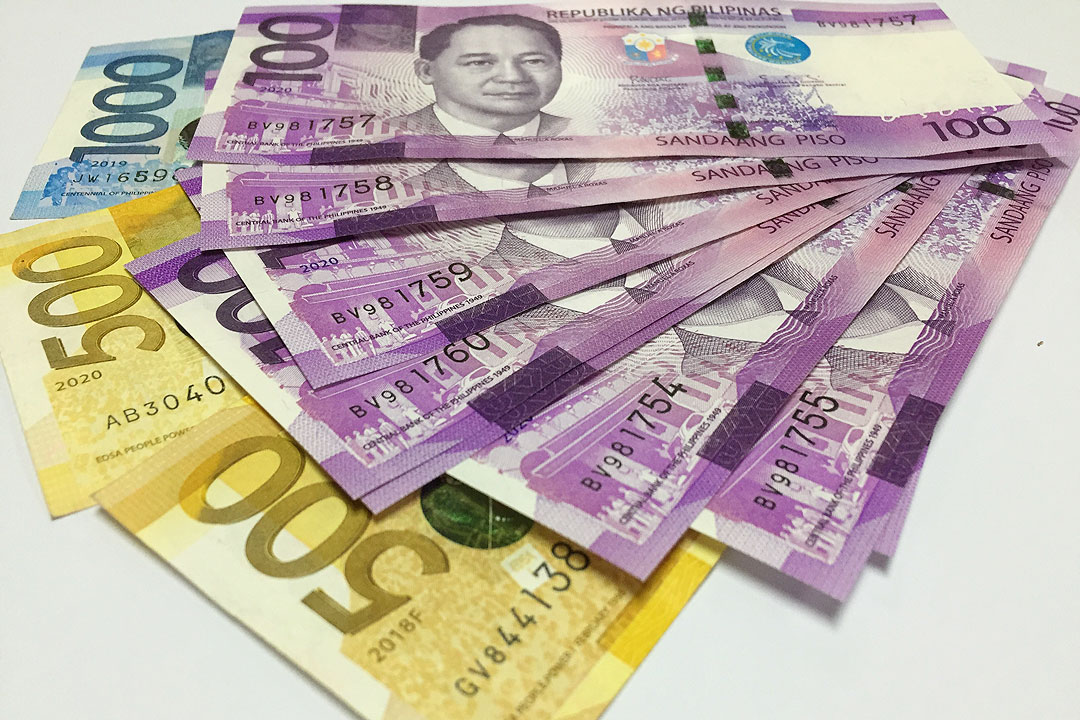




January Economic Update: Growth slows, prices rise
 DOWNLOAD
DOWNLOAD

Inflation Update: Up, up, and away?
 DOWNLOAD
DOWNLOAD

Quarterly Economic Growth Release: Growth takes on a slower pace
 DOWNLOAD
DOWNLOAD


Bank lending growth hits 19-month high in July

Bank lending grew at its fastest pace in 19 months in July, preliminary data from the Bangko Sentral ng Pilipinas (BSP) showed.
Outstanding loans of universal and commercial banks rose by 10.4% year on year to PHP 12.14 trillion in July from PHP 11 trillion a year ago.
The July growth rate was the fastest since the 13.7% logged in December 2022.
On a seasonally adjusted basis, big banks’ outstanding loans inched up by 0.8% month on month.
The growth in outstanding loans to residents picked up to 10.4% in July from 10.1% a month prior. The increase in loans to nonresidents slowed to 9.2% in July from 9.8% in June.
BSP data showed that outstanding loans for production activities accounted for the bulk or 85.4% of overall lending.
Loans for production activities rose by 8.8% year on year to PHP 10.37 trillion in July, faster than 8.3% in June.
This was mainly driven by an increase in loans for professional, scientific and technical services (438.3%), water supply, sewerage, waste management and remediation activities (28.2%), transportation and storage (20.6%), and mining and quarrying (20.4%).
Meanwhile, consumer loans to residents rose by 24.3% to PHP 1.42 trillion in July. However, this was a tad slower than the 25% rate posted a month ago.
Broken down, double-digit growth was seen in credit cards (28.2%), motor vehicles (19.9%), and salary-based general purpose consumption loans (16.5%).
Rizal Commercial Banking Corp. Chief Economist Michael L. Ricafort said that the continued growth in bank lending is a “good sign for the economy.”
Mr. Ricafort noted that bank lending growth was faster than the 6.3% gross domestic product (GDP) expansion in the second quarter.
However, Mr. Ricafort noted that credit growth was still dampened by “still relatively higher interest rates that made borrowings more expensive since 2022.”
From May 2022 to October 2023, the central bank has raised borrowing costs by a cumulative 450 basis points (bps).
“The pickup in bank loan growth in recent months could be attributed to improved business and economic conditions, especially in terms of improved data on employment in recent months,” Mr. Ricafort said.
For the coming months, he said that easing inflation and further policy rate reductions would help support loan activity.
The Monetary Board delivered a 25-bp rate cut last month, bringing the benchmark rate to 6.25% from the previous 6.5%, which was the highest in over 17 years.
BSP Governor Eli M. Remolona, Jr. has also signaled another possible 25-bp rate cut in the fourth quarter.
MONEY SUPPLY
Meanwhile, separate BSP data showed that domestic liquidity (M3) rose by 7.2% in July, faster than the 6.6% a month ago.
M3 — which is considered as the broadest measure of liquidity in an economy — jumped to P17.5 trillion in July from P16.31 trillion a year earlier.
Month on month, M3 inched up by 0.7%.
Domestic claims increased by 11.3% in July, faster than the 10.5% expansion in June.
“Claims on the private sector grew by 11.9% in July from 11.7% in June with the continued expansion in bank lending to nonfinancial private corporations and households,” the BSP said.
“Net claims on the central government expanded by 14%, up from 12.1% partly due to sustained borrowings by the National Government,” it added.
Meanwhile, net foreign assets (NFA) in peso terms increased by 11.2% in July from 8.3% in the previous month.
“The BSP’s NFA grew by 13.8%, while the NFA of banks contracted, largely on account of higher bills and bonds payable,” it added. – Luisa Maria Jacinta C. Jocson, Reporter
This article originally appeared on bworldonline.com





 By BusinessWorld
By BusinessWorld